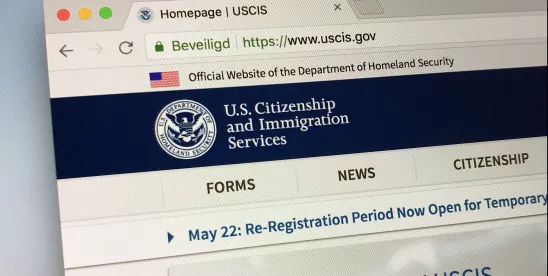Summary:
1. The Illinois Department of Human Services and the Illinois Department of Healthcare and Family Services released updates to their medical procedures for Asylum Applicants and Torture Victims (AATV) and Victims of Trafficking, Torture or Other Serious Crimes (VTTC). The changes, effective as of June 5, 2024, clarify the state-funded vs federally-funded medical coverage. With new requirements for VTTC benefit eligibility now in place, single adult applicants without any derivate family members or children are no longer eligible, and those intending to file for a T Visa, U Visa, or asylum are also ineligible. Another key change concerns proof of application for AATV assistance, which is now required. The principle victim or Head of Household (HOH) must list family members included in the visa/asylum application on the Individual Household page for eligibility consideration. Verification procedures differ for VTTC applicants who have filed and those who are preparing to file a T Visa, U Visa, or Asylum.
2. The U.S. Citizenship and Immigration Services (USCIS) has provided new guidance stipulating that from November 1, 2023, an immigration medical examination (Form I-693) filled out by an approved civil surgeon will have no expiration date, if completed correctly. The previous validity rules apply for Medical Exams conducted before November 1, 2023. Immigration officers have discretionary power to ask for a new exam if they suspect the applicant’s health status has changed or if the Form I-693 does not accurately reflect their current health condition.
3. Harvard International Students can now resume visa processing to the U.S. following a court order to reverse the prior directive under the Trump administration. The order affects only Harvard affiliates, and all other institutions’ students are unaffected. In another update, the Department of Homeland Security (DHS) is moving forward with the termination and revocation of parole and employment authorization granted by CHNV parole programs for Cuban, Haitian, Nicaraguan, and Venezuelan individuals, following the Supreme Court decision on June 6. In other news, the USCIS has now clarified that any Form I-693 (Medical Exam) signed on or after November 1, 2023, is only valid if linked to an active application such as Form I-485. If the application is denied or withdrawn, the I-693 will also be considered invalid. Finally, the USCIS has put a pause on ICE worksite raids in the agriculture, hospitality, and restaurant sectors briefly following President Trump’s appeal. But ICE later declared that it would continue enforcement, focusing on employers employing undocumented workers with criminal records.
Starting from July 3, 2025, U.S. Citizenship and Immigration Services (USCIS) will only accept the 01/20/25 edition of Form I-693, known as the ‘Report of Immigration Medical Examination and Vaccination Record.’ Previously, either the 03/09/23 or the 01/20/25 editions were accepted if signed by a civil surgeon before July 2, 2025. This form plays a pivotal role in assessing the health status of immigrants seeking to gain citizenship or permanent residency in the United States. It consists of a thorough medical examination including an evaluation of the individual’s medical history, physical examination, chest x-ray and blood tests for syphilis.
Finding affordable physicians qualified to conduct these examinations is a challenge for immigrants, particularly in areas such as Kansas City, which has only 17 registered civil surgeons for its growing immigrant population. The tests can cost much more than many immigrants can afford, with one provider telling immigrant Priyanka Raeburn that her examination would cost $1,400, exclusive of any subsequent vaccinations. Many overcome these hurdles by visiting community health centers such as KC CARE Health Center, who offer the examinations at a cost of $250.
Simultaneously, the USCIS’s implementation of drastic and sudden policy changes under the Trump Administration has affected immigrants. One notable shift is the immediate alteration to permanent residency application procedures. Previously, applicants could use forms indefinitely; however, the updated directive demands a renewed medical examination form for every new application. This unexpected change cripples those currently applying for adjustment of status, who had previously been permitted to reuse a form signed by a civil surgeon until June 10.
The permanent residency applicants are now required to undergo a reexamination and acquire a freshly signed copy of the I-693 if their initial application is withdrawn. This signatory procedure can cost between $100 and $500 and, given the mandate’s immediacy, may require immigrants to pay twice over. Moreover, demand for such services is unlikely to diminish significantly in the immediate future, despite concerns surrounding potential crackdowns on immigration from a Trump-led administration.
The U.S. Citizenship and Immigration Services (USCIS) has altered its policy, now requiring Form I-693, the Report of Immigration Medical Examination and Vaccination Record, to be filed simultaneously with all adjustment of status applications. This latest move is a sudden shift from previous USCIS filing requirements for adjustment of status applicants seeking permanent residency in the U.S. These prior requirements allowed applicants to submit green card applications without Form I-693, enabling them to delay a potentially lengthy aspect of the process.
Form I-693 essentially documents an immigrant’s eligibility to enter the U.S. by addressing their health-related admissibility according to the Immigration and Nationality Act. After a medical and vaccination history-checking examination by a USCIS-approved civil surgeon, the form must be signed, sealed, and delivered unaltered to USCIS as part of the application process.
Previously, the validity of the form was limited to two years from the date of the civil surgeon’s signature, often necessitating applicants to redo medical examinations for cases subject to processing times exceeding 24 months. However, in April 2024, USCIS majorly updated this policy, ruling that a properly filled and signed Form I-693 would not expire and could serve indefinitely as proof of the applicant’s admissibility on health-related grounds. The USCIS officer reviewing the case now holds discretion to ask for additional evidence or a new or updated Form I-693 if they suspect a change in the applicant’s medical condition.
Under the new policy, USCIS requires Form I-693 to be filed alongside the adjustment of status application. The prior approach, which offered flexibility during service disruptions caused by the pandemic peak, let applicants submit adjustment of status applications in a timely manner, deferring the medical examination form’s potentially cumbersome acquisition to a later date. If the applicant chose to defer the Form I-693 submission, USCIS would typically solicit the form through a request for additional evidence or occasionally during the green card interview.
Under the updated policy, applicants must furnish Form I-693 concurrently with the adjustment of status request submitted via Form I-485, leaving zero room for ambiguity. Failure to do so may result in the rejection of Form I-485, potentially causing the applicant to miss their filing window entirely if the immigrant visa availability undergoes retrogression.
Prospective Adjustment of Status applicants may take several measures to ensure Form I-693 is filed correctly and at the right time with the rest of their application. Securing a recently executed, sealed form, and understanding its contents are crucial. Other steps include tracking down vaccination records in advance, identifying a civil surgeon early, and scheduling an appointment as soon as eligibility for adjustment of status application filing is confirmed. By taking these steps, applicants can ensure efficient completion of this essential component, despite the new policy’s reduction in flexibility.
Sources:
 USCIS Immigration Medical Exam Guidance
USCIS Immigration Medical Exam Guidance WR Immigration News Digest
WR Immigration News Digest United States | USCIS Reminder: New edition of Form I-693 effective July 3
United States | USCIS Reminder: New edition of Form I-693 effective July 3 Immigrants need a medical exam to become citizens. Cheap options are hard to find in Kansas City
Immigrants need a medical exam to become citizens. Cheap options are hard to find in Kansas City Trump Admin Makes Green Card Change ‘Effective Immediately’
Trump Admin Makes Green Card Change ‘Effective Immediately’ USCIS Mandates Concurrent Filing of Form I-693 with Adjustment of Status Applications
USCIS Mandates Concurrent Filing of Form I-693 with Adjustment of Status Applications





Leave a Reply